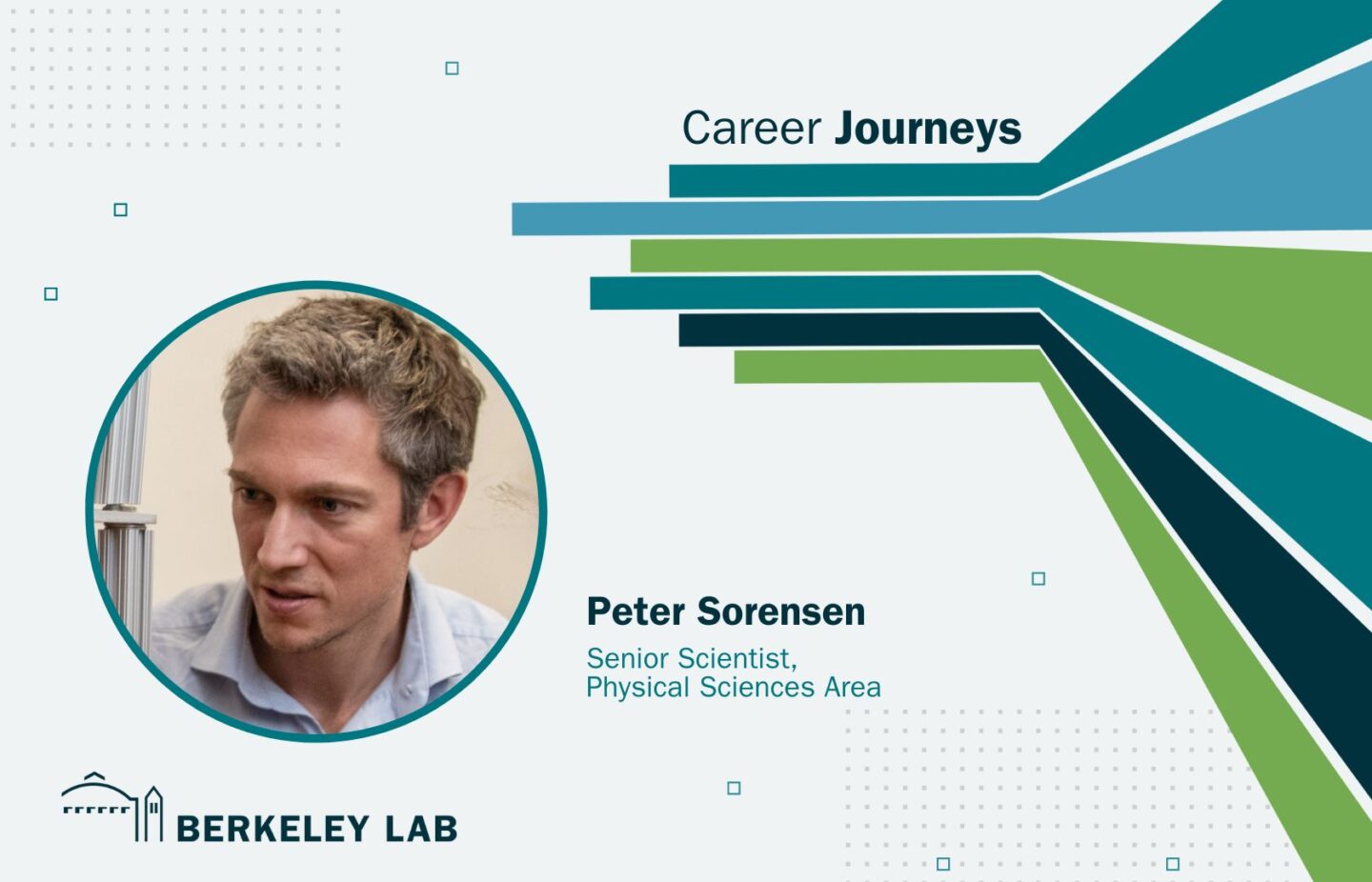Peter Sorensen’s advice to those looking for postdoc opportunities? Get a map. A good map. Sorensen, then living in Rhode Island, was looking for a postdoc position in the Bay Area because his wife was starting a graduate program at Stanford University. They planned to live near the campus in Mountain View. Sorensen accepted a postdoc position at Lawrence Livermore National Laboratory, which looked close enough to his new home from 3,000 miles away. Little did he know the commute involved a solid hour of six lanes of traffic that, at times during the day, didn’t move.
Despite the commute, Peter found being a postdoc at Livermore was an excellent career move, with considerable academic freedom, opportunities for career development, and interesting projects. At that time, Livermore was one of the only institutions on the West Coast looking for dark matter, Sorensen’s area of interest, and he stayed at Livermore for several years. By then, Berkeley Lab was active in dark matter research, and Sorensen came to the Lab in 2014 as a Division Fellow. That path led him to become a senior scientist five years later, in 2019.
“I was always curious, even as a kid,” said Sorensen. “I was the one who wanted to take everything apart and then try to put it back together. Friends didn’t exactly appreciate it when I would break their stuff, but I couldn’t help myself. I look at the universe, trying to unravel how it all interacts. It is a fascinating puzzle.”
“A fundamental aspect of R&D is that many times in the process, things don’t work. Sometimes you don’t know how you are going to make it work. That’s the fun part.“
– Peter Sorensen
How many different jobs have you had in your career journey, and which one was the most rewarding? Why?
I’ve had dozens of different jobs. I started as a stock boy in an organic grocery store, which made me curious about the invisible aspects of food and health and how that affects people’s choices. But I have to say being a postdoc has been the most rewarding. It was a time when I could really get lost in the lab, and published several exciting results.
However, my current job is equally as rewarding. As a senior scientist, I am now mentoring postdocs. I get less hands-on work now since they need the experience. But seeing them succeed is satisfying. This is fortunate, as it has become a stand-in for my desire for discovery.
Who was your most influential mentor – formal or informal – and how did they shape your career path?
My official mentors have all been influential, from undergraduate through postdoc. My Ph.D. advisor, Richard Gaitskell, was very passionate about discovery. He sometimes worked late into the night with me on data analysis. From that, I developed a high level of rigor and attention to detail in my analysis. I’ve worked in large collaborations, so numerous PIs have shaped my career path. PIs are people, too, so they come in all stripes. Some were challenging to be around and to work with. I’ve been in labs where I felt I worked for the PI rather than with a team. This mixes poorly with sustained 12-15 hour days. I see now how pressure, stress, and the difficulty of proper planning can lead to that behavior. From that, I learned what tone to not set in my lab.
As a postdoc at Livermore, I first met Dave Nygren, a distinguished senior scientist at LBNL. My mentors, Adam Bernstein and Mike Heffner, and I met about a new project with Dave and others from LBL. Dave had this new idea for counting individual electrons from an ionizing event. It sounded unlikely to work, but I was intrigued. Years later, Dave was still at the Lab when I came for a job interview. It was then that he told me he was surprised I had gotten the idea to work! From Dave, I learned that with R&D, it is okay to be wrong. It is sometimes better to try something new, even if it doesn’t work out. So much of science is incremental, and that isn’t always sufficient.
What career setback or mistake has helped you to succeed or grow?
As a graduate student, I found myself on the wrong side of a collaborating PI. That culminated with my name being withheld from a paper. It felt unfair, unethical – not to mention against the rules of the American Physical Society. That was a character-building experience for me. I thought my career might be over when that happened. I talked with a dean at the university, but they said it was out of their hands. I realized no one could fix the situation. I never got my name back on that paper.
From that, I learned how to keep my head down. But that isn’t really a lesson I would want any of my team to have to learn. Given the zeitgeist today, it seems incredible that these things ever happened.
What is the most important career advice you have received or learned?
Love what you do, and have fun doing it. There is an adage about many hands making light work, and it is true of course. But at an individual level, fun makes light work. And that can shorten the path to the most exciting results.
A career at Berkeley Lab offers a range of opportunities supported by training, mentorship, and career development programs. Whether you choose to build a career at the Lab or take your skills to other organizations, a career path to and at the Lab sets you up for success.
